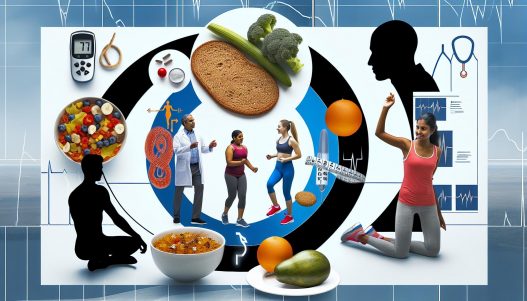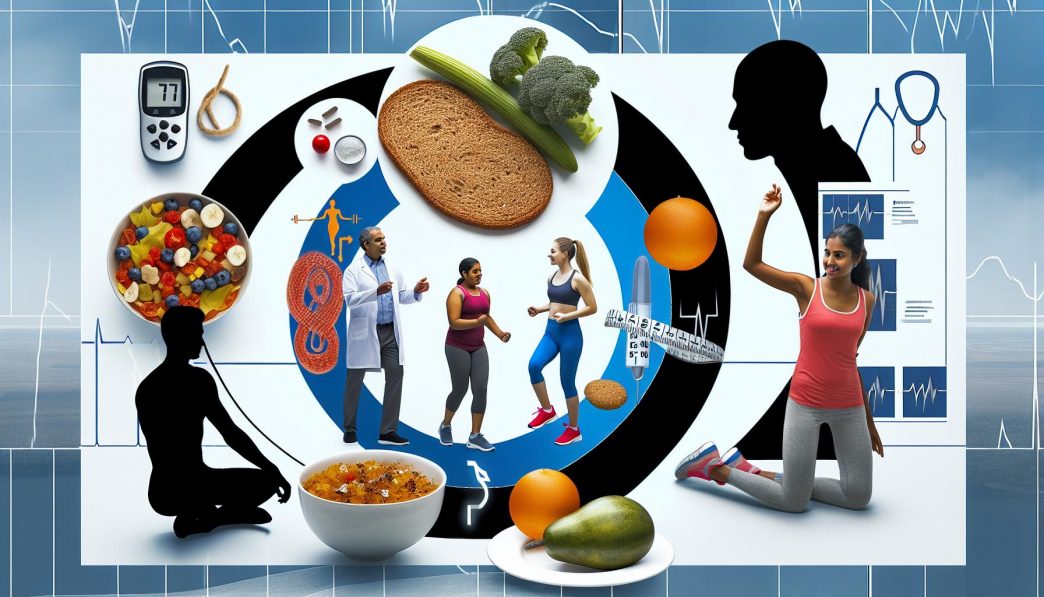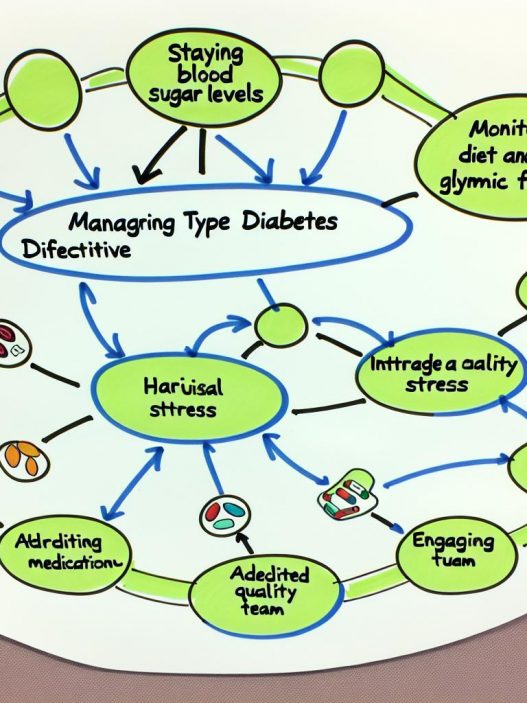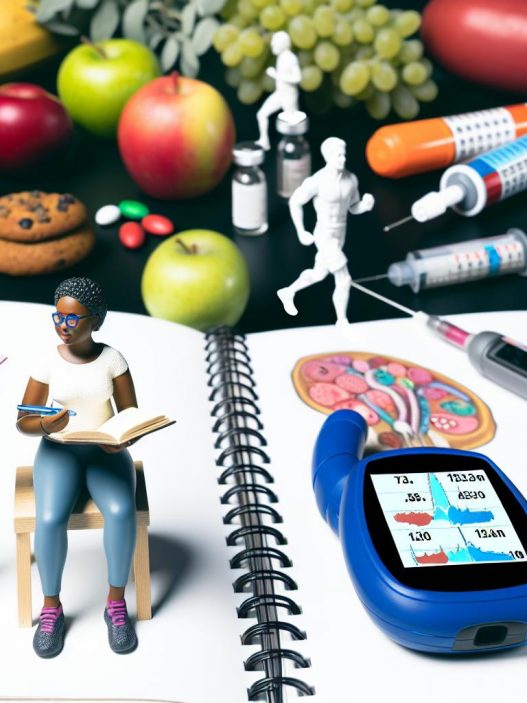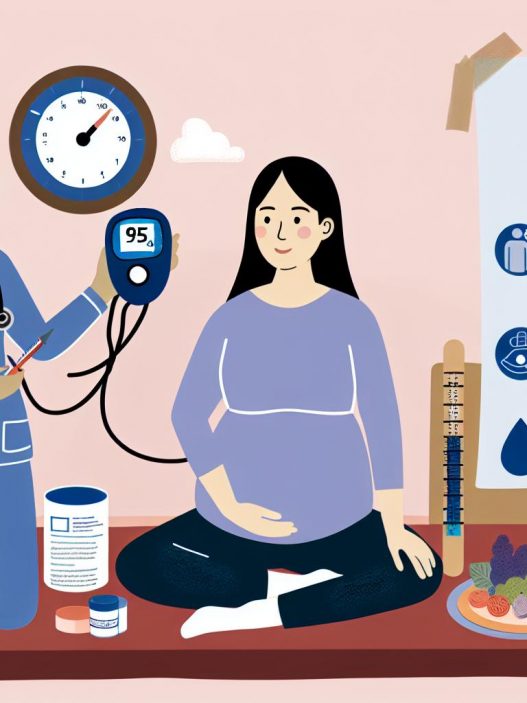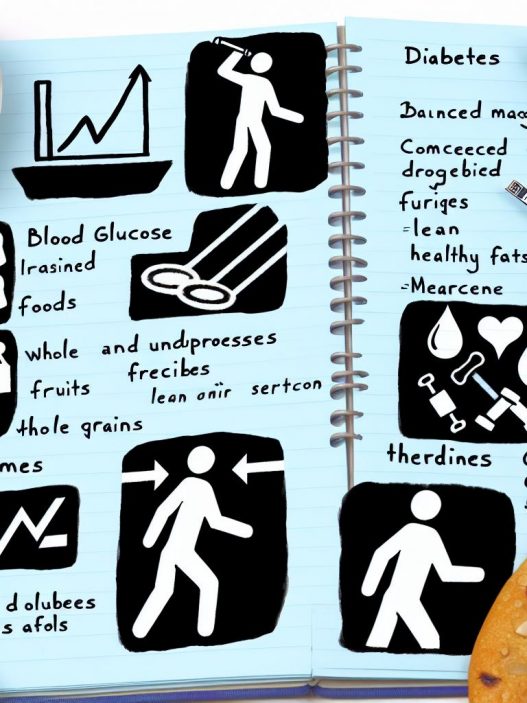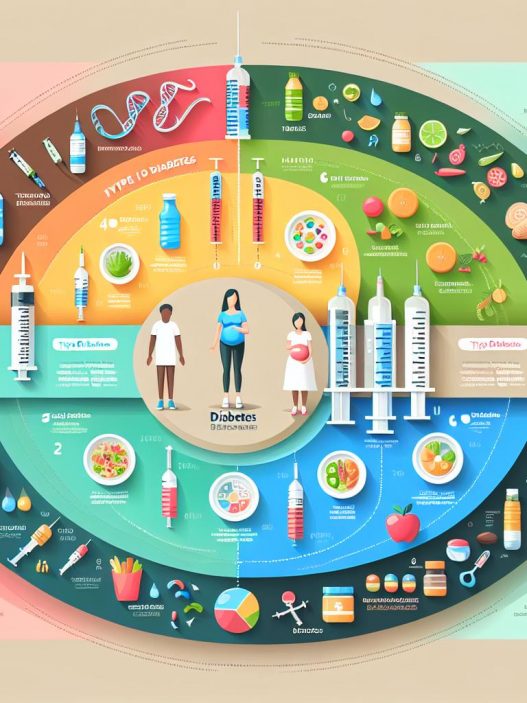# Practical Tips for Managing Type 2 Diabetes Effectively Today
Managing Type 2 diabetes can be daunting, but with the right strategy and practical tips, you can take control of your health effectively. This article offers actionable advice and insights to help you manage your diabetes daily, improve your lifestyle, and enhance your overall well-being. Whether you are newly diagnosed or have been living with diabetes for years, these practical tips will empower you to manage your condition successfully.
Understanding Type 2 Diabetes: A Comprehensive Overview
Type 2 diabetes is a chronic condition that affects the way your body metabolizes glucose, a sugar that is essential for energy. Instead of responding to insulin properly, people with Type 2 diabetes either do not produce enough insulin or their bodies resist insulin’s effects. This leads to elevated blood sugar levels, which can cause significant health complications if left unmanaged. Understanding the underlying mechanisms of Type 2 diabetes is vital for effective management.
Furthermore, factors such as genetics, age, and lifestyle choices play a crucial role in the development and progression of Type 2 diabetes. Being informed about these factors can help you make better decisions regarding your health. By focusing on a balanced diet, regular physical activity, and monitoring your blood sugar levels, you can greatly improve your quality of life and minimize the risks associated with diabetes.
Dietary Changes: Practical Nutrition Tips for Blood Sugar Control
One of the most important aspects of managing Type 2 diabetes is making informed dietary choices. An effective diet is one that focuses on whole, nutrient-dense foods while minimizing processed and high-sugar options. Incorporating more fiber into your meals is crucial because it slows down glucose absorption and helps maintain stable blood sugar levels. Foods rich in fiber include vegetables, whole grains, legumes, and fruits such as berries and apples.
Portion control is also essential for managing your weight and blood sugar levels. One effective strategy is to practice mindful eating, which involves paying attention to what you eat, savoring every bite, and recognizing when you’re full. This can help prevent overindulgence and unnecessary snacking. Moreover, it’s important to spread your meals throughout the day rather than eating large portions at once. Consider consulting with a registered dietitian to help create a personalized meal plan that meets your needs.
Another significant dietary factor is carbohydrate counting. Understanding how various types of carbohydrates affect your blood sugar is crucial: opt for complex carbohydrates, such as whole grains, legumes, and starchy vegetables, over simple sugars and refined carbs. Additionally, consider incorporating healthy fats, like avocados, nuts, and olive oil, which can slow digestion and help regulate blood sugar fluctuations.
Physical Activity: The Key to Effective Diabetes Management
Regular physical activity is an essential pillar of diabetes management. Engaging in physical exercise not only helps control blood sugar levels but also promotes overall health and well-being. Aim for a mix of aerobic exercises, strength training, and flexibility workouts. Activities like walking, swimming, cycling, and dance can be enjoyable and effective.
One of the best ways to integrate exercise into your daily routine is to set realistic and achievable fitness goals. This could mean starting with a 30-minute brisk walk five days a week, gradually increasing to longer sessions or more intense workouts. Aim for at least 150 minutes of moderate aerobic activity each week. Additionally, strength training exercises should be included at least twice a week to help maintain muscle mass and promote weight stability.
Don’t forget the importance of staying active throughout the day. Simple changes like taking the stairs instead of the elevator, walking during your lunch break, or even doing household chores can contribute significantly to your daily activity levels. Consistent movement can help lower blood sugar levels after meals and improve insulin sensitivity.
Monitoring Blood Sugar Levels: Staying Informed
To effectively manage Type 2 diabetes, regular blood sugar monitoring is crucial. By checking your glucose levels, you gain valuable information about how your diet, activity, and medications affect your blood sugar levels. This knowledge empowers you to make informed decisions that promote better management of your condition.
Establish a routine for checking your blood sugar, as recommended by your healthcare provider. This may involve testing fasting blood sugar levels in the morning, monitoring post-meal levels, or checking before and after physical activity. Keeping a log of your monitoring results can help identify patterns and trends.
Advances in technology have made monitoring easier with the use of continuous glucose monitors (CGMs). These devices track blood sugar levels in real-time, providing a deeper understanding of how your body responds to various factors, such as food and exercise. Discuss with your healthcare professional whether a CGM may be suitable for you and consider utilizing apps that help you manage your readings and provide recommendations based on your data.
Stress Management Techniques: Keep Your Mind and Body Balanced
Stress is often an overlooked factor in diabetes management, yet it can significantly affect blood sugar levels and overall health. When faced with stress, the body releases hormones that can create fluctuations in glucose levels, making management more challenging. Hence, incorporating stress management techniques into your daily routine is crucial.
Practices like mindfulness meditation, deep breathing exercises, or yoga can help reduce daily stressors and promote relaxation. These techniques support emotional health and can also improve diabetes management by lowering blood sugar levels.
Consider journaling or talking to a trusted friend or therapist to engage with your feelings and find ways to cope with daily stresses effectively. Establishing a supportive community of friends, family, or diabetes support groups can also make a significant difference in managing stress and providing encouragement.
Additionally, ensure you are getting adequate rest. Poor sleep quality and duration can lead to insulin resistance and, ultimately, higher blood sugar levels. Aim for 7-9 hours of sleep each night, and implement good sleep hygiene practices to help improve your sleep quality.
Collaboration with Healthcare Professionals: The Importance of a Support System
Having a strong support system is key in managing Type 2 diabetes efficiently. Regular check-ins with healthcare professionals such as endocrinologists, diabetes educators, registered dietitians, and mental health specialists can provide crucial insights and recommendations for managing your condition.
Open communication with your healthcare team allows for personalized adjustments to medications and treatment plans, reflecting your progress. Attend annual check-ups and regular visits to monitor your blood pressure, cholesterol, and overall health metrics.
Moreover, developing a collaborative relationship with your healthcare provider empowers you to voice your concerns and ask questions. They can provide essential feedback and tailored advice based on your specific needs while helping you set achievable goals. Involvement in diabetes management workshops or local community health programs can also offer valuable resources, motivation, and support from fellow individuals experiencing similar challenges.
In conclusion, managing Type 2 diabetes requires a comprehensive approach that emphasizes proper diet, physical activity, blood sugar monitoring, stress management, and collaboration with healthcare professionals. By implementing these practical tips into your daily life, you can take significant steps toward effective diabetes management, enhance your quality of life, and thrive despite your diagnosis. Taking control of your health is always within reach with the right strategies and resources.










